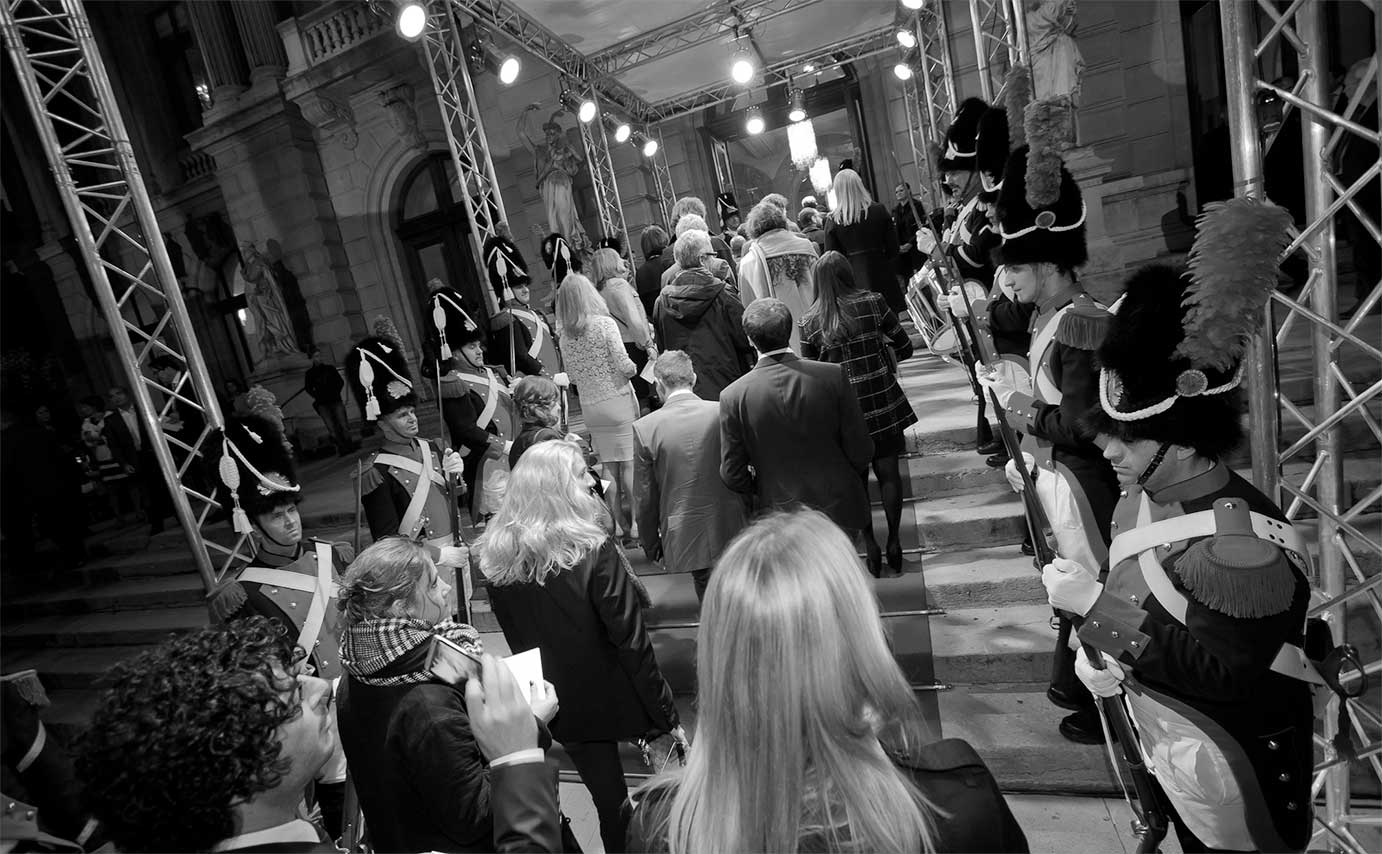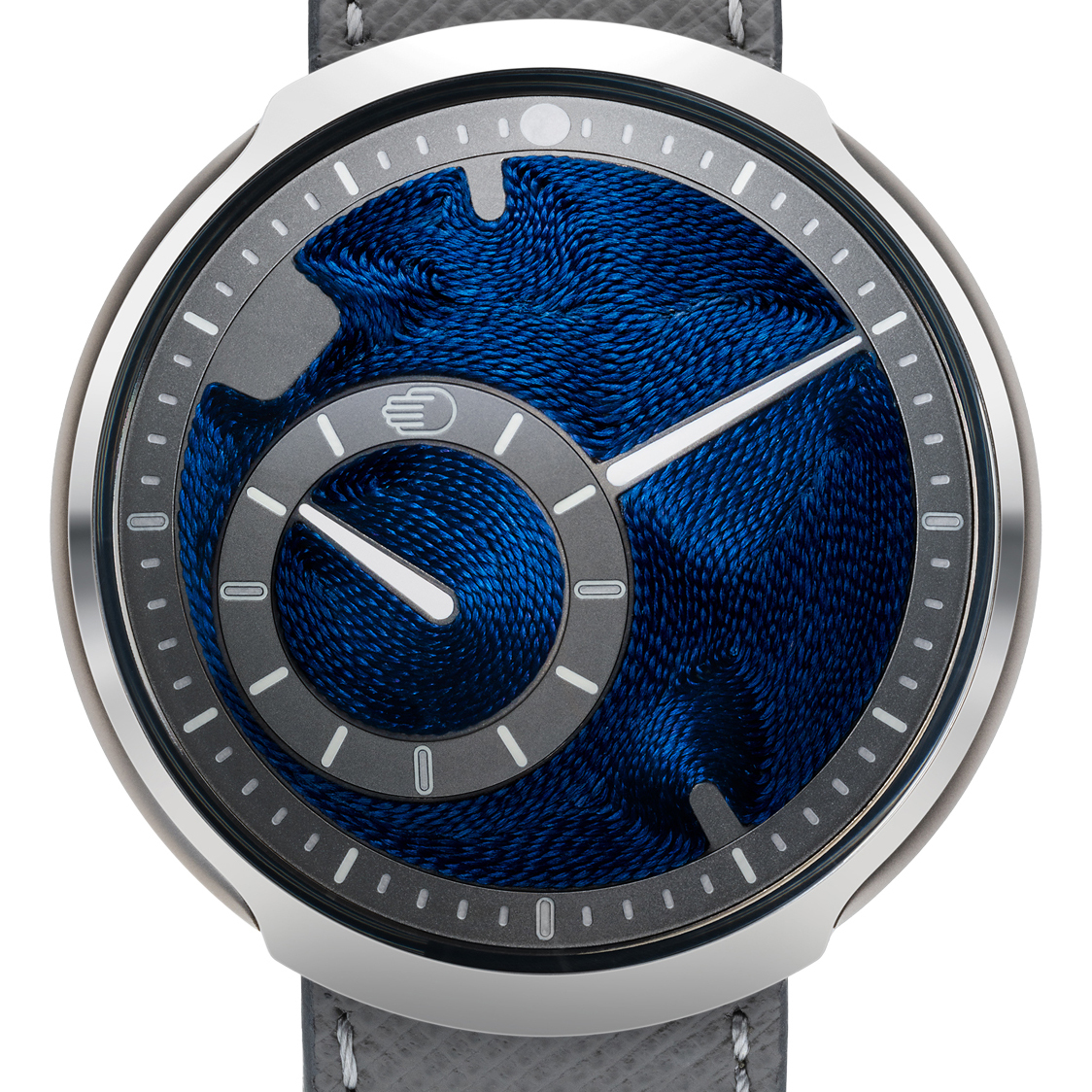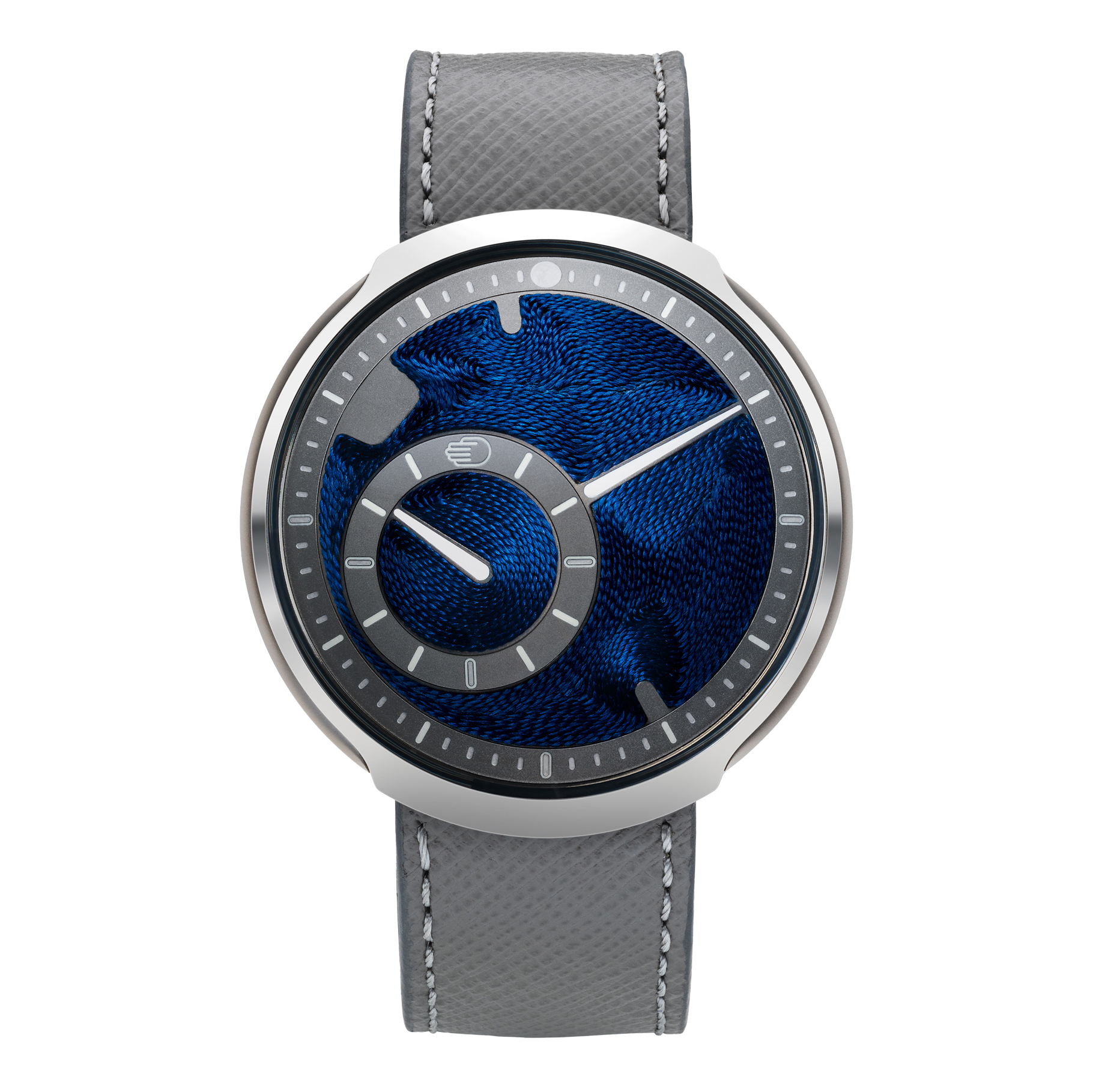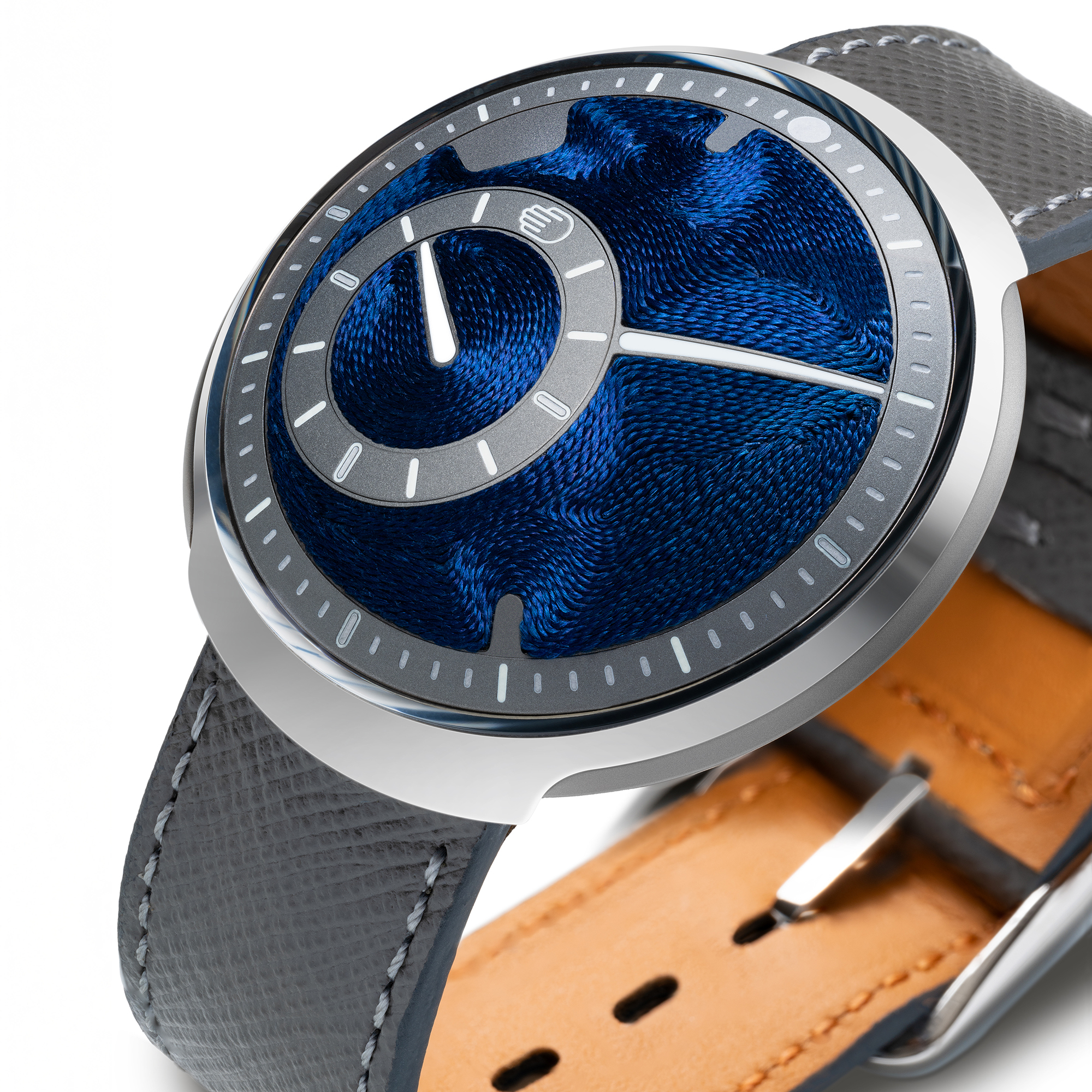
TYPE 8 Indigo
Power reserve: 36 h, 28800 vph
TYPE 8 indigo
The TYPE 8 Indigo tells the story of time in vibrant blue, showcasing the delicate beauty of natural indigo through the intricate application of silk thread. Much like the growth rings of a tree marking the passage of years, the dial design evokes the flow of time in a visually captivating manner.
The silk thread
Ressence's journey to create the TYPE 8 Indigo began with a commitment to authenticity. This led to the choice of thread as the ideal medium to showcase the true essence of natural indigo. Ressence partnered with Buaisou, a company based in Kamiita-cho, Tokushima Prefecture, the heart of indigo dyeing. Buaisou cultivates their own indigo plants and manages every aspect of the dyeing process in- house, ensuring the highest quality and respect for tradition
A legacy of indigo
Indigo is said to be the oldest dye known to mankind. Indigo dyeing is a centuries-old Japanese craft, renowned for its deep warm hue, known as 'Japan Blue.' Believed to be introduced to Japan via the silk trade of India or through the ancient cultures of China, its production in the Land of the Rising Sun began as early as the 6th century. The indigo plant, Indigofera, an annual plant in the Fabaceae family, is prized for its colour and medicinal properties. Its leaves are harvested and fermented over months to produce "Sukumo," the natural pigment that has been a cornerstone of Eastern art and textile.
Arts & Métiers
The delicate task of placing and bonding the silk thread to the titanium components was expertly carried out by a renowned Geneva-based atelier. Each dial requires two days of meticulous work by a skilled craftswoman. The thread is applied in a single piece, spiralling from the outer edge inward, following the contours of the cavity. To preserve the silk's natural visual effect, special bonding materials are used to prevent glue from seeping into the fibres and altering the colour.



